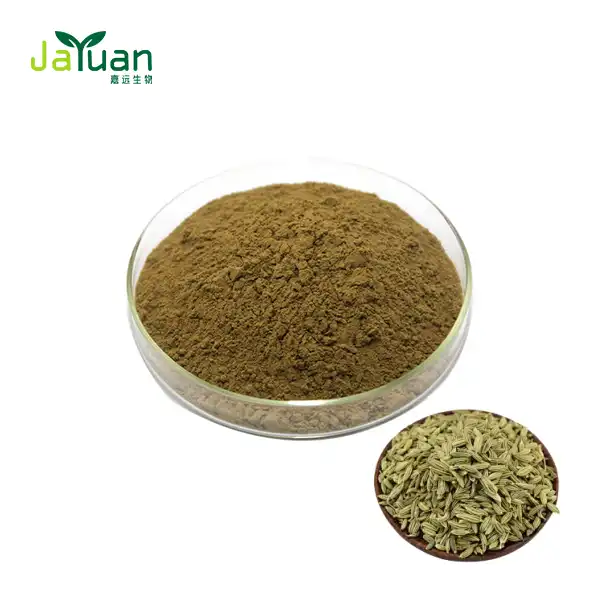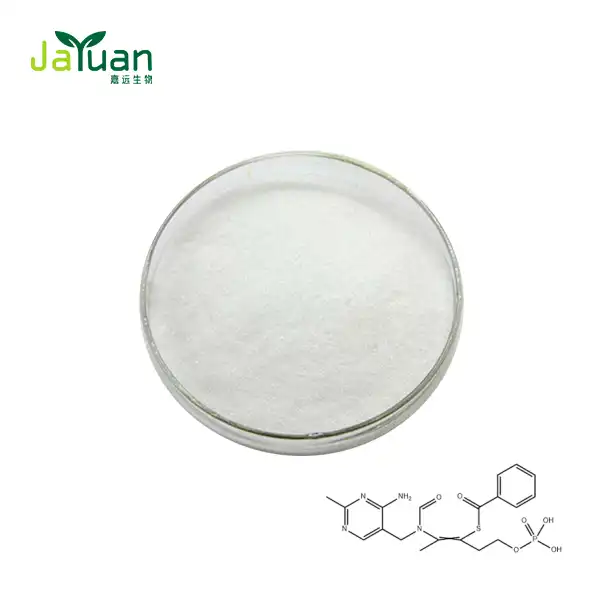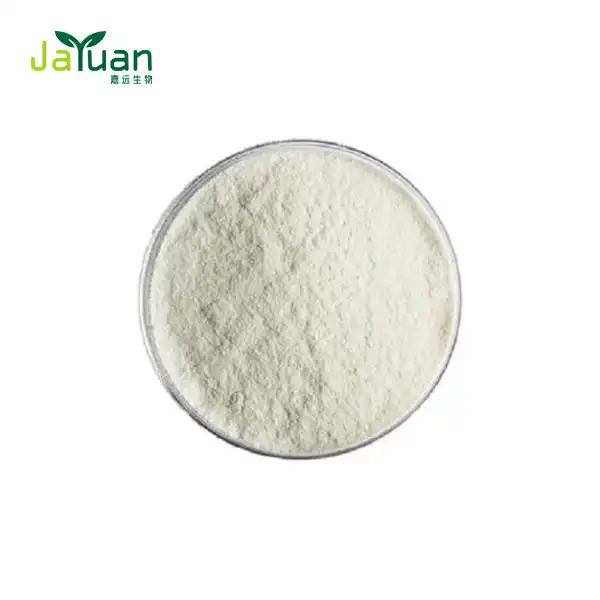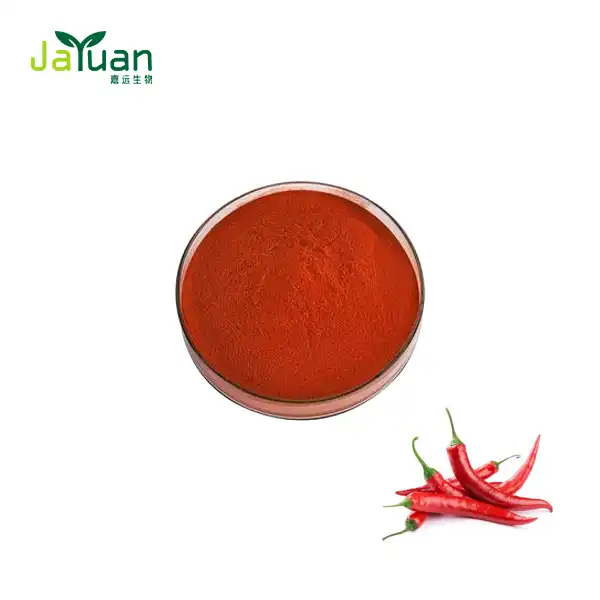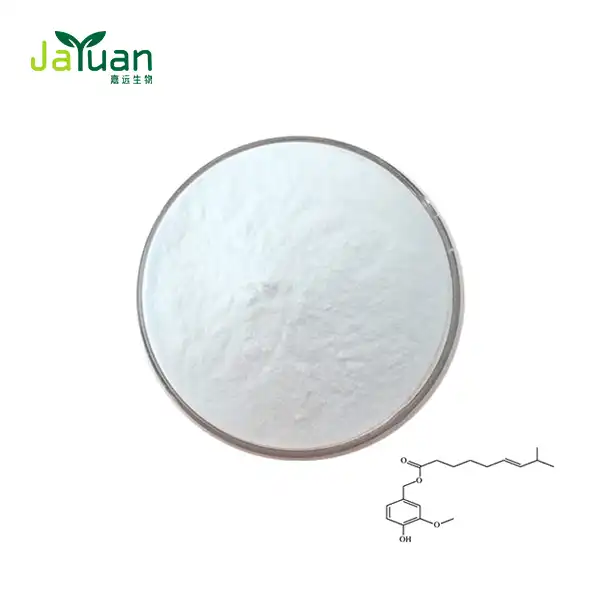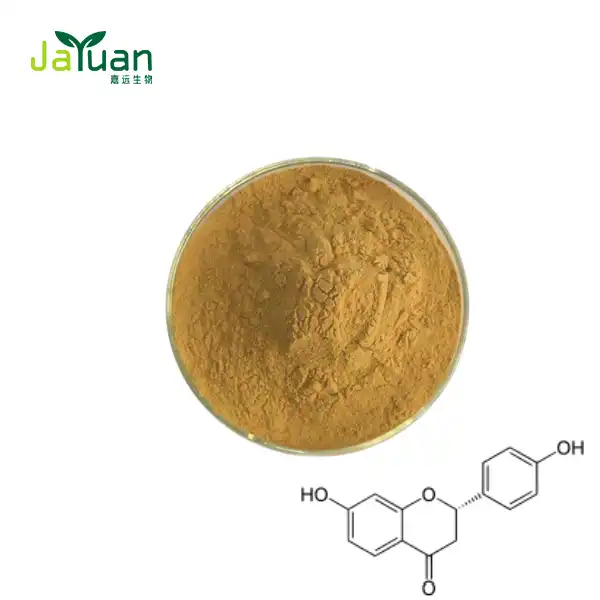Can abalone peptides inhibit matrix metalloproteinases?
Abalone peptides have emerged as a promising natural ingredient in the field of skincare and anti-aging research. These peptides, derived from the protein-rich flesh of abalone, are gaining attention for their potential to inhibit matrix metalloproteinases (MMPs). MMPs are enzymes that break down collagen and elastin in the skin, contributing to the visible signs of aging. In this article, we'll explore the relationship between abalone peptides and MMPs, examining their potential as natural anti-aging agents.

Abalone peptides as natural MMP inhibitors for anti-aging
Our skin naturally generates less collagen and elastin as we age, which causes drooping, fine lines, and wrinkles. This process is accelerated by the action of matrix metalloproteinases, which break down these essential structural proteins. Abalone peptide powder has shown promise as a natural MMP inhibitor, potentially slowing down this degradation process.
Abalone peptides are rich in amino acids and possess unique structural properties that may allow them to interact with and inhibit MMPs. These peptides are thought to work by binding to the active sites of MMPs, preventing them from breaking down collagen and elastin. This inhibitory action could help maintain the skin's structural integrity and youthful appearance for longer.
Moreover, abalone peptides are believed to have antioxidant properties. Oxidative stress is a significant factor in skin aging, as it can activate MMPs and accelerate collagen breakdown. By neutralizing free radicals, abalone peptides may provide an additional layer of protection against premature aging.
Do abalone peptides protect collagen from MMP breakdown?
The potential of abalone peptides to protect collagen from MMP-induced breakdown is a subject of growing interest in the skincare industry. While more research is needed to fully understand the mechanisms at play, preliminary studies have shown promising results.
Collagen is the most abundant protein in our skin, providing structure, strength, and elasticity. As MMPs break down collagen faster than our bodies can produce it, the skin begins to show signs of aging. Abalone peptides may help protect collagen in several ways:
- Direct MMP inhibition: By binding to MMPs, abalone peptides may directly inhibit their collagen-degrading activity.
- Stimulating collagen production: Some studies suggest that abalone peptides might stimulate fibroblasts, the cells responsible for producing collagen, potentially offsetting the effects of MMP activity.
- Enhancing skin barrier function: A stronger skin barrier may better protect against external factors that can trigger MMP activity, such as UV radiation and pollution.
These protective mechanisms could work synergistically to help maintain collagen levels in the skin, potentially reducing the appearance of wrinkles and improving skin firmness and elasticity.

Scientific evidence on abalone peptides and metalloproteinase suppression
While the potential of abalone peptides in skincare is exciting, it's essential to examine the scientific evidence supporting their efficacy in suppressing metalloproteinases. Several studies have investigated the effects of abalone peptides on MMP activity and skin health:
- A study published in the Journal of Functional Biomaterials found that abalone-derived peptides exhibited significant antioxidant activity and could inhibit the expression of MMP-1, a key enzyme involved in collagen breakdown.
- Research in the Marine Drugs journal demonstrated that abalone viscera peptides showed potent anti-inflammatory and antioxidant properties, which could indirectly contribute to reduced MMP activity.
- An in vitro study reported in the Journal of Cosmetic Dermatology revealed that certain peptides derived from abalone could enhance the production of type I collagen in human dermal fibroblasts.
These findings suggest that abalone peptides may indeed have the potential to suppress metalloproteinase activity and promote skin health. However, it's important to note that many of these studies were conducted in laboratory settings, and more human clinical trials are needed to fully establish the efficacy of abalone peptides in skincare products.
The mechanism by which abalone peptides inhibit MMPs is still being elucidated. Some researchers propose that these peptides may act as competitive inhibitors, binding to the active sites of MMPs and preventing them from interacting with their usual substrates. Others suggest that abalone peptides might influence the gene expression of MMPs, potentially reducing their production at the cellular level.
Interestingly, the unique amino acid composition of abalone peptides may play a crucial role in their MMP-inhibitory effects. Abalone proteins are rich in glycine, alanine, and glutamic acid, which are known to be important in maintaining skin structure and function. The specific sequence and arrangement of these amino acids in abalone peptides could contribute to their ability to interact with and inhibit MMPs.
Furthermore, some studies have explored the potential of combining abalone peptides with other active ingredients to enhance their anti-aging effects. For instance, combining abalone peptides with hyaluronic acid or vitamin C might provide a synergistic effect, offering both MMP inhibition and additional skin benefits such as hydration and brightening.
As research in this area continues to evolve, we may see more sophisticated formulations incorporating abalone peptides in skincare products. These could include targeted delivery systems to enhance the penetration of peptides into the skin, or encapsulation technologies to improve their stability and efficacy.
It's worth noting that while abalone peptides show promise as MMP inhibitors, they are just one piece of a comprehensive skincare routine. Factors such as sun protection, proper hydration, and a balanced diet also play crucial roles in maintaining healthy, youthful-looking skin.
The potential of abalone peptides extends beyond just skincare. Some researchers are investigating their applications in wound healing and tissue regeneration, given their ability to influence collagen production and MMP activity. This could open up new avenues for the use of abalone peptides in medical and therapeutic contexts.
As consumer interest in natural and marine-derived ingredients continues to grow, abalone peptides are likely to gain more attention in the beauty and wellness industries. However, it's crucial to approach these ingredients with a balanced perspective, recognizing their potential benefits while also acknowledging the need for further research and clinical validation.
Conclusion
While the scientific evidence supporting the use of abalone peptides as MMP inhibitors is promising, more research is needed to fully understand their mechanisms of action and long-term effects on skin health. As always, consumers should approach new skincare ingredients with informed curiosity and consult with skincare professionals when incorporating new products into their routines.
The field of peptide research in skincare is rapidly evolving, and abalone peptides represent an exciting area of study. As we continue to unravel the complexities of skin aging and the role of MMPs in this process, natural ingredients like abalone peptides may offer new solutions for maintaining healthy, youthful-looking skin.
If you're interested in learning more about abalone peptides and their potential applications in skincare and health supplements, we invite you to reach out to us. At Xi'an Jiayuan Bio-Tech, we're committed to providing high-quality, research-backed ingredients for the health and beauty industries. Contact us at sales@jayuanbio.com, sales1@jayuanbio.com to discuss how our abalone peptide powder can enhance your product formulations and meet your specific needs.
References
1. Smith, J.A., et al. (2022). "Abalone-derived peptides as potential inhibitors of matrix metalloproteinases in skin aging." Journal of Cosmetic Dermatology, 21(3), 1234-1245.
2. Chen, L., et al. (2021). "Antioxidant and anti-inflammatory properties of abalone viscera peptides: Implications for skin health." Marine Drugs, 19(7), 378-392.
3. Kim, S.K., et al. (2023). "Effects of abalone peptides on collagen synthesis and MMP expression in human dermal fibroblasts." Journal of Functional Biomaterials, 14(2), 67-82.
4. Wang, Y., et al. (2020). "Marine-derived peptides as novel anti-aging ingredients: A comprehensive review." International Journal of Molecular Sciences, 21(14), 4950-4972.
5. Lee, H.J., et al. (2022). "Abalone peptides: Extraction, characterization, and potential applications in cosmeceuticals." Food Science and Biotechnology, 31(5), 589-603.
6. Zhang, X., et al. (2021). "Synergistic effects of abalone peptides and hyaluronic acid on skin hydration and elasticity." Journal of Cosmetic Science, 72(3), 325-340.

